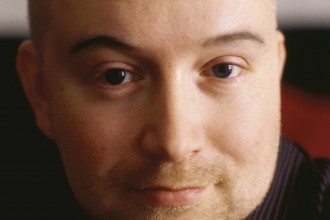All four of Thomas Oberholzer’s adoptive grandparents had been thrilled by the little boy’s arrival in their lives: a boon and a blessing to brighten their sunset years, so they imagined. Both couples had volunteered, loudly, to babysit with him or keep him in their own homes when his parents wanted to get away. As the child grew older, these offers became ever fainter. By the Christmas on which he attained — at least on paper — six years of age, the grandparents had to be cajoled to have anything to do with him at all.
On a Saturday morning not long after the sixth birthday festivities, Bettina’s parents agreed, after their daughter resorted to tears, to stay with Tommy in the afternoon. After lunch Martin and Bettina prepared to go out. Tommy was in his room, doing no one quite knew what. His maternal grandparents pottered uneasily about the flat, watering an amaryllis here, straightening a picture frame there.
The snowplow had just cleared the secondary road to Todikon, in the northern part of the canton. Low walls of filthy snow lined the shoulders on either side. Wispy buttermilk clouds filtered the light of the sun, emerging anew after an absence of many days.
On their one previous trip to the orphanage, almost four years earlier, it had rained. And yet on that dark April day, the cluster of dun-colored buildings had shone like Camelot. Today, in sunshine growing stronger by the minute, the institution looked as inviting as a penitentiary. They drove into the courtyard and parked.
Regina Aeppli received the couple at the main entrance. “Beautiful day it’s turning out to be, isn’t it?†As they marched through the foyer, she cast a discreet glance at the streaks of white in Martin Oberholzer’s chestnut hair. She registered, too, that Bettina’s equilibrium appeared to be impaired: the young woman lurched oddly from time to time as she walked.
Once seated in the director’s clinical office, Martin plunged into the matter at hand. “Mrs. Aeppli, my wife and I are here because of our son.â€
The director, who could have been her visitors’ mother, answered dryly: “I assumed it had to do with him.â€
“The fact is,†the man went on, “we want to know about his background. Who his biological parents were and anything else in his file.â€
“When you came for the boy — I remember it well — you made the point that you didn’t want to know any of that,†Regina Aeppli replied.
“Things have happened in the meantime to change our minds,†Bettina explained.
A barely perceptible change — but her visitors did perceive it — came over the director’s features. The woman was slipping out of one role and into another. “Yes?â€
“We’d like to see the orphanage’s file on the boy, Mrs. Aeppli,†Martin said. “The chocolate bars you keep on every corpse.â€
The older woman frowned. “Would you say that again, Mr. Oberholzer?â€
On their one previous trip to the orphanage, almost four years earlier, it had rained. And yet on that dark April day, the cluster of dun-colored buildings had shone like Camelot. Today, in sunshine growing stronger by the minute, the institution looked as inviting as a penitentiary.[/pullquote_right]
Martin took himself in hand, as he had to do with his son. “You have a file on each child that comes here. You keep these documents in a filing cabinet in your offices. We’d be glad if you’d mow our son’s trousers out of the filing cabinet and let us see them.â€
“Armpit smell,†appended Bettina.
Regina Aeppli drew back slightly from the table, as if distancing herself from something unclean. “Your son’s file was destroyed.â€
“What?!†Martin cried. “You’re not allowed to destroy files on human beings like that!â€
“I didn’t say that I destroyed it.â€
“Then how…†Bettina began. “Sugar biscuits.â€
“The file in question was burned. We had a fire in our archives two years ago, and your son’s was one of those that was reduced to ashes.â€
Martin clenched his fists. “I’m sure you remember what was in it, don’t you, Mrs. Aeppli? The orphanage isn’t that big, after all.â€
“Very little, I’m afraid.â€
“How long was the carrion here? How long?†Bettina asked.
“The boy was a foundling,†the director answered. “He was literally left on our doorstep in a basket.â€
“What was in the basket with him? A sack full of gold pieces?†Bettina cackled and flailed her arms about. “Ice cream cones?â€
The older woman’s chair grated as it moved still farther back from the table. “No gold and no ice cream. A letter.â€
“A letter? From his parents, no doubt. Biological ones, I mean.†Martin put his head in his hands.
“Mashed potatoes and lizard guts,†crooned Bettina to a lullaby tune. “What did the letter say?â€
“I really don’t remember.â€
“What was the boy’s name?†Martin roared. “His name, for God’s sake!â€
“I don’t recall,†Regina Aeppli answered.
Martin and Bettina Oberholzer stared dully at the orphanage director. Both of them could see in the woman’s face that she was lying through her teeth.
Charles Edward Brooks, born in North Carolina, took degrees at Guilford College and Duke University. He then completed a doctorate at the University of Lausanne in Switzerland. His work involved international travel and communication in a number of languages. His short stories have appeared in magazines including Crack the Spine and Pacific Review.




